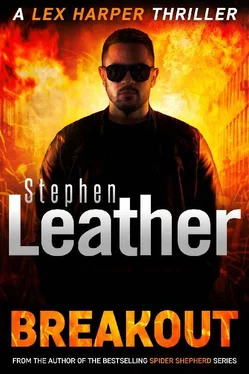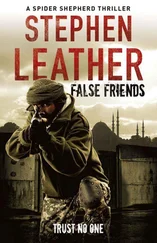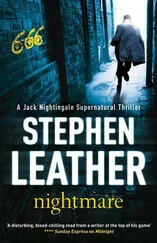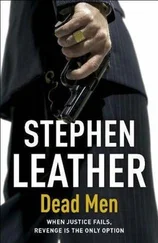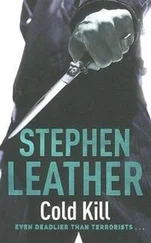‘Because there is always the danger that the courier might himself become a kidnap victim?’
‘Exactly. Anyway, when the courier reaches his destination, once he has passed through customs and immigration - and obviously we have people on our payroll there to ensure his bags are not searched or impounded - he is normally met by a company employee who transfers the cash into another flight case fitted with two different locks. The employee keeps one of the keys and the courier has the other. Any attempt to force the case or open it using only one of the keys triggers a device that renders the money worthless. The courier then proceeds to the holding point - usually a hotel with good security - and waits there until the go-between arrives, ready to collect the cash and make the handover. The courier gives the go-between his key and the company employee provides the other one when he is satisfied that the deal will go through without a hitch. Once the ransom is paid, the victim is released alive. Hopefully.’
‘But Scouse never got that far, did he? He just dropped off the map.’
‘As I said, we sent another courier and the ransom was paid and the hostage released.’
Harper sat back in his chair and sighed.
‘I can see you’re not getting the information you hoped for,’ said the chairman. ‘You are welcome to go to South America yourself. I will ask our representatives there to make themselves available.’
‘Where would be best to start? La Paz, where Scouse went missing?’
‘I would suggest you first talk to one of our people in Bogotá. He knew your friend and worked with him. Sam Standish.’
‘Sam Standish? Samuel Arthur Standish?’
‘You know him?’
‘Small world,’ said Harper. ‘He was a Para when I was in. We were together in the Balkans, back in the day. We called him Sass, because of his initials. SAS. You know his story, right?’
The chairman shook his head. ‘Not really.’
‘Sam was a subaltern, a lieutenant with one of the Para companies with a great future in front of him. His grandfather had served with distinction in the army during the inter-war years, retiring from the General Staff at the end of the Second World War, while his father had commanded a parachute battalion and was a legend in airborne forces. Sam’s father had such high hopes for his son that he had been christened Samuel Arthur Standish, but those initials turned out to be rather optimistic because Sam soon discovered that he really disliked being a soldier. He left not long after we were in the Balkans and we lost touch. It’ll be good to see him again.’
‘My PA will get you the address of the hotel he’s using. And as a gesture of good faith, we can buy your ticket. Business class, obviously.’
Harper smiled and shook his head. ‘That’s okay,’ he said. ‘I’ll pay my own way.’ Actually he’d happily have taken the man’s money but if he booked tickets for Harper he’d need his passport details and Harper preferred to keep them to himself.
CHAPTER 5
Harper was given the address of a hotel in Bogotá and he booked his own tickets. On the way to the airport he stopped off at a travel shop and bought several maps of Bolivia, covering La Paz and the surrounding areas, and maps of Colombia and Peru to be on the safe side. The only relatively gentle terrain around La Paz appeared to be due west, towards the southern end of Lake Titicaca and the Peruvian border beyond it. In every other direction, the terrain looked daunting whether it was through the high mountains of the Cordillera Occidental - the western range of the Andes - as far as Peru to the north and north-west; or east across the Cordillera Oriental - the equally mountainous eastern range - and then through the dense tropical rainforest to the border with Brazil; or the Altiplano to the south - the arid high plateau between the twin arms of the Andes mountain ranges. The further south you went, the drier the terrain became, with first salt flats and then desert: the start of the Atacama Desert, the driest place on earth.
He flew with Air France via Paris, and paid for his own business class seat so that he would arrive in a reasonable state. The food, and the wine, was excellent, as he’d expected from the French, and the seat was comfortable enough that he managed to grab several hours sleep.
He arrived at El Dorado airport in Bogotá just after 10pm and was given a ninety-day tourist visa by a bored immigration officer. He left the terminal and joined a taxi queue, and after a ten minute wait climbed into the back of a yellow taxi. He gave the driver the address that the chairman had given him and the driver grunted and set off.
After a thirty-minute drive, during which the driver said not a word, the taxi pulled up outside a large terraced house in an area of the city housing several foreign embassies. There was nothing to indicate that the building was a hotel, except for a discreet brass plaque screwed to the wall on the right of the door. The driver jerked his head towards the door and then turned away, looking down the street, while Harper jumped out and retrieved his case. He paid the fare and Harper went inside as the taxi drove away.
There was a small reception desk to one side, with a bar barely large enough to house half a dozen guests and a small dining room on the other. There were noises and good smells from the kitchen at the back and a few moments later, a young woman dressed in jeans and a T-shirt protected by a cook’s apron came out.
She smiled at Harper and handed him an envelope and a large brass key. ‘Welcome, Señor Harper,’ she said. ‘This is a message that was left for you and your room is number six on the top floor at the back. It is the room that has been used by your previous colleagues who found it quite satisfactory. When you are in your room, please keep the door locked. There is very little crime in this part of the city but it is better to be prepared. Enjoy your stay.’
Making his way up two flights of stairs, Harper found himself in a surprisingly large room with two windows looking out over the rooftops. He dropped his backpack on the bed. Testing the windows, he found they had not been used recently and squeaked and protested as he tried to open them.
He had only been in the room a few minutes when there was a soft knock on his door. He opened it to see Sam Standish, as large as life and probably fifty pounds heavier than the last time Harper had seen him. ‘Fuck me, Sass, you’re a sight for sore eyes.’
‘Of all the gin joints in all the world,’ said Standish, stepping forward and giving him a bear hug. ‘Good to see you, Lex. Fuck me, it’s been years.’
‘Older but not really any wiser,’ said Harper, patting the man on the back.
‘Fancy a drink in the bar?’
Harper grinned. ‘I thought you’d never ask.’
They went downstairs and sat at a corner table. They both sat with their backs to the wall, creatures of habit. Standish was wearing a crumpled linen suit, his skin was sheened with sweat and it had a faint yellow tinge.
‘You okay?’ Harper asked.
‘I got a dose of malaria,’ said Standish. ‘Forgot to take the fucking tablets. Actually that’s not true. The tablets made me feel like shit so I stopped taking them. Serves me right.’
The young woman who had checked Harper in came over, this time without her apron, and they ordered beers from her.
‘So you’re in the kidnapping business,’ said Harper as the woman walked away. ‘That Proof Of Life was a great movie.’
Standish chuckled. ‘It’s not like the movies, mate,’ he said. ‘And I’m no Russell Crowe, obviously. In fact it’s precisely as exciting as being a loss adjuster for an insurance company, which in fact is pretty much all the job entails. Kidnappers open negotiations with a demand for a stupendous sum - $10 or $20 million is not unusual - but the Kidnap and Ransom negotiator’s job is simply to counter first with a demand for a proof of life - the victim holding a copy of that day’s newspaper or something to prove he’s still alive - and then make a minuscule counter-offer. Through long, wearisome weeks or even months of negotiation and haggling, we eventually beat the kidnappers down to a figure that the insurers are willing to pay - usually in the region of $50,000 to $100,000. That K and R strategy invariably means that the victim of the kidnapping spends far longer in captivity, fear and terror than would have been strictly necessary had the insurance company been more concerned with his well-being and less concerned with the bottom line.’
Читать дальше
